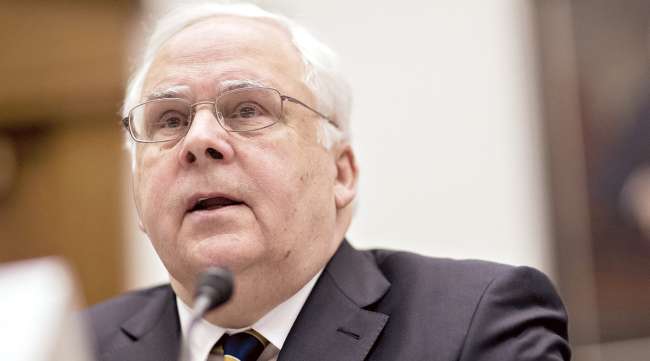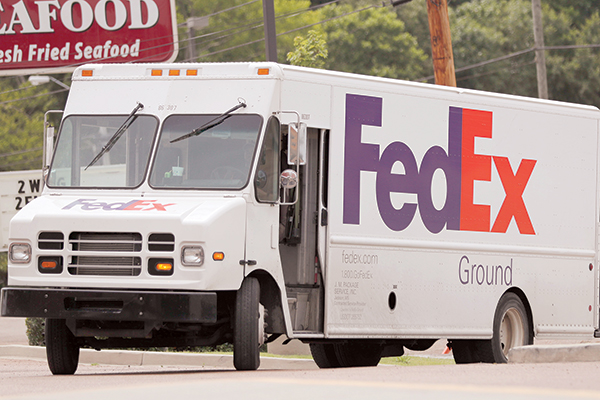Staff Reporter
FedEx Disputes Report on Federal Taxes Paid in 2018

[Stay on top of transportation news: Get TTNews in your inbox.]
The CEO of FedEx Corp. came out swinging after a news report called into question the company’s track record on capital investments and tax payments in the wake of federal tax reform efforts.
“FedEx takes pride in paying its full share of taxes and has paid almost $10 billion in total taxes in the U.S. during the last five fiscal years, contributing to tax revenues of the U.S. government,” Fred Smith said in a statement released Nov. 17, the same day The New York Times in an article suggested the company did not spend as much on capital as it had previously projected but had nonetheless received a major tax break.
At issue is a tax benefit the Memphis, Tenn.-based carrier received in 2018, a one-time result of the new tax code that President Donald Trump and a Republican-led Congress passed in late 2017. The Times’ central claim was that in the 2017 fiscal year, FedEx owed more than $1.5 billion in taxes, but the next year owed nothing.
The Tax Cuts and Jobs Act of 2017 cut the top corporate income tax rate from 35% to 21%. In addition, tax deductions could be made if capital spending reached certain levels. Also permitted was a recalculation on deferred liabilities — obligations not due immediately. Companies such as FedEx took advantage, and the recalculation ended up being a one-time tax benefit, something FedEx called an “anomaly.”
In his statement, Smith noted that FedEx invested billions on capital items that were eligible for accelerated depreciation after the tax code took effect, boosted salaries and also made contributions to the employee pension plans. These factors, he said, lowered the company’s federal income tax, which he said was, “the law’s intention to help grow GDP and generate investment in the U.S.”
“Everyone went through some adjustments that revalued some tax components as a result of [the new tax law],” said Ben Hartford, an analyst at Robert W. Baird & Co. Inc. who follows FedEx. “It is an anomaly.” Hartford said going forward, the corporate income tax rate FedEx is going to pay is more likely to be closer to what it paid in its fiscal year 2019: an effective rate of 17.6%.

The New York Times claims FedEx owed more than $1.5 billion in federal taxes in the 2017 fiscal year and then nothing in 2018. (Rogelio V. Solis/Associated Press)
Other transportation companies also have seen reduced tax liabilities since the new tax code took effect. According to 10-K reports filed with the federal government, UPS Inc. reported $671 million in federal income taxes in 2017 on pre-tax income of $7.1 billion, and then $89 million in 2018 taxes on pre-tax income of $6 billion.
XPO Logistics Inc. reported $122 million in income taxes on $566 million in income for 2018. For 2017, the company had some deferred-liability recalculations due to the new tax law. XPO’s 10-K report noted it paid no federal income taxes in 2017. It paid $22 million in income taxes in 2016, on income of $107 million.
Adam Michel, a senior policy analyst for the Heritage Foundation, said it’s hard to judge a company’s tax liabilities by one year. However, he believes the change in the tax code was needed to discourage companies from moving overseas. Still, he said it will be a while before its long-term effects can be judged.
“The tax cuts are changing the long-term structure of how the tax code interacts with U.S. business,” Michel told TT. “That’s not an instantaneous phenomenon. That takes several years … and the data is a couple of years after that.”
FedEx ranks No. 2 on the Transport Topics Top 100 list of the largest for-hire carriers in North America. UPS ranks No. 1 and XPO is No. 3 on the TT Top 100 for-hire carriers list.
Want more news? Listen to today's daily briefing:




